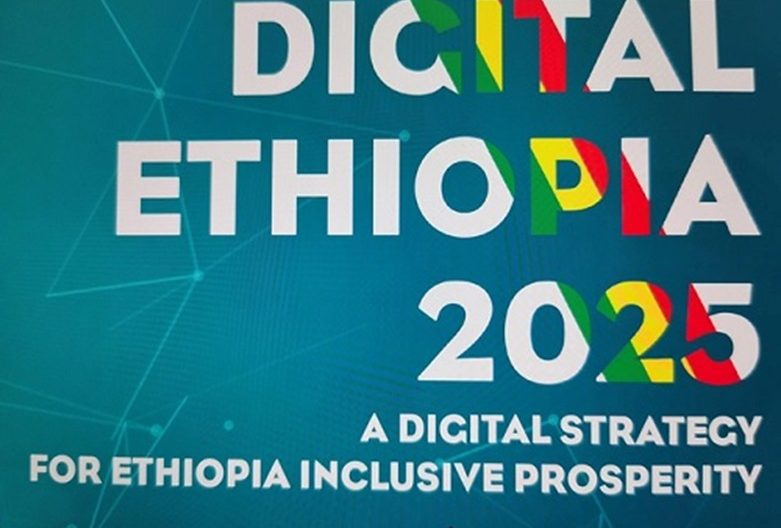
In today’s rapidly evolving world, digitalization has become a crucial factor in driving socio-economic development. Countries around the globe are investing heavily in digital technologies to streamline processes, improve efficiency, and enhance the overall quality of life for their citizens. As technology continues to evolve at a rapid pace, countries around the world are leveraging digitalization to drive socio-economic transformation. Ethiopia is also working massively through recognizing the importance of prioritizing digitalization to ensure socio-economic transformation.
Digitalization refers to the process of integrating digital technologies into various aspects of society, including government services, businesses, healthcare, education, and more. By harnessing the power of digital technologies such as artificial intelligence, block chain, and cloud computing, countries can revolutionize their operations and create innovative solutions to complex challenges.
According to experts in the field, embracing digitalization offers numerous benefits for developing countries like Ethiopia. It can help streamline bureaucratic processes, reduce corruption, and improve transparency in government operations. By digitizing services such as healthcare and education, the country can reach more citizens and provide better access to essential resources. Additionally, digitalization can drive economic growth by attracting foreign investment and creating new opportunities for local businesses.
So far, to realize the digitalization journey the government eyes developing a comprehensive strategy that addresses key areas of focus. This includes investing in digital infrastructure, promoting digital literacy among citizens, establishing robust data protection laws, and fostering collaboration between the public and private sectors, among others.
One effective way to drive digital transformation is through Public-Private Partnerships (PPP), where the government works closely with businesses and organizations to leverage their expertise and resources. By creating a conducive environment for innovation and entrepreneurship, Ethiopia can attract investment and spur growth in the digital sector.
While the benefits of digitalization are clear, Ethiopia faces several challenges in implementing widespread digital transformation. Limited access to reliable internet infrastructure, low levels of digital literacy, and inadequate regulatory frameworks are some of the barriers that the country must address. Additionally, ensuring data privacy and cyber security are crucial considerations in the digital age.
However, these challenges also present opportunities for Ethiopia to leapfrog traditional development pathways and adopt cutting-edge technologies. By investing in digital infrastructure, providing training programs for digital skills and fostering a culture of innovation, Ethiopia can position itself as a leader in the digital economy. Recently, the Ministry of Innovation and Technology (MoIT) stated that it is working to realize digital Ethiopia so as to improve productivity and service delivery.
Digitizing the sectors like agriculture, manufacturing, tourism and information technology can help to get huge benefits, secure the ecosystem of the nation and ensure the country’s competitiveness globally, said MoIT State Minister Yeshurun Alemayehu (PhD) during the concluding event of Digital Ethiopia Week.
To ensure digital Ethiopia soon, he expressed that all the aforementioned sectors are expected to be digitalized to avail huge benefit and the country ought to enter into the digital economy, develop and ensure technological advancement by expanding infrastructure including building a data center.
According to Yeshurun, digitizing the manufacturing, agriculture and tourism sectors is crucial to advance productivity and efficiency thereby securing better income. To this end, ensuring digitalization by expanding information technology would help to provide quality goods and services.
“If we implement the aforesaid things properly, we can ensure digital Ethiopia. The government is designing strategies to achieve the aforesaid (ambitions) in years to come,” he said. Moreover, building and creating integrated digital financial platforms like Telebirr and M-pesa – mobile payment services, helps to facilitate a secured ecosystem, he stressed.
As to him, the nation needs to build a digital ecosystem that regulates all sectors at a time when they run their daily businesses or provide services for the community. “What we are going to build is the one platform to interact with various government sectors together to ease the load work environment in a sustainable manner.”
When organizations apply digital schemes and use locally developed operating systems, they can secure national interest and utilize human resources in an efficient manner. The State Minister also expressed that his Ministry is striving to realize digital Ethiopia by designing a twenty-year perspective plan, he said.
Accordingly, with the rapid adoption of digital technologies across various sectors, Ethiopia is witnessing a significant shift towards a more connected and efficient economy. Digitalization technology has the potential to revolutionize the way businesses operate, enabling them to streamline processes, improve efficiency, and drive innovation. In Ethiopia, the adoption of digital technologies such as e-commerce platforms, mobile payment systems, and online banking services have opened up new opportunities for businesses to reach a wider market and improve their competitiveness.
By embracing digitalization, Ethiopian businesses are able to reduce costs, increase productivity, and enhance customer satisfaction. This, in turn, is fueling economic growth and creating new job opportunities for the country’s growing workforce. As more businesses digitize their operations, the overall efficiency of the economy is improving, leading to greater prosperity for all Ethiopians.
Moreover, one of the key benefits of digitalization technology is its ability to empower communities and individuals, especially those in remote or underserved areas. In Ethiopia, digital technologies are being used to provide access to essential services such as healthcare, education, and financial services to remote communities that were previously underserved.
In sum, by embracing digital technologies and leveraging them to drive innovation, the country can overcome challenges, create new opportunities, and improve the quality of life for its citizens through prioritizing digitalization. With the right strategies and partnerships in place, Ethiopia can harness the power of digitalization to accelerate its development and thrive in the digital age.
BY TEWODROS KASSA
The Ethiopian Herald March 14 /2024





